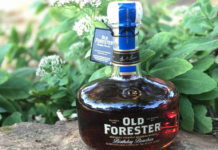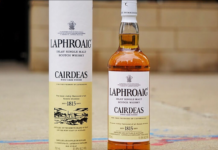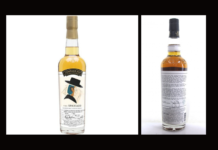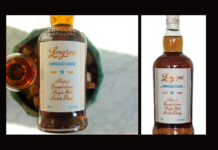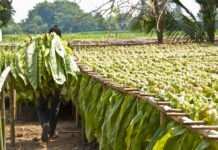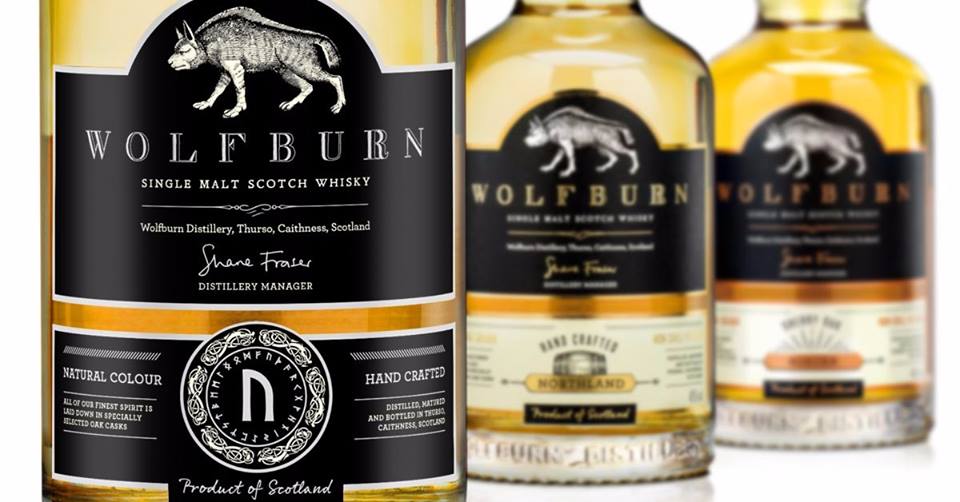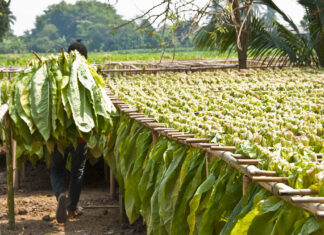Wolfburn is a Scotch whisky distillery in Thurso, Caithness, Scotland. After ceasing production in the 1860s it reopened in early 2013. We spoke to Shane Fraser, the man behind its wonderful spirit – you might recognize his name from the label on the Wolfburn Bottle. The process of making quality whisky without cutting corners can be long and daunting, but Shane’s passion and the mission to instill excellence in every bottle that is released, is truly admirable. Sit back and enjoy the journey that Shane takes us on.
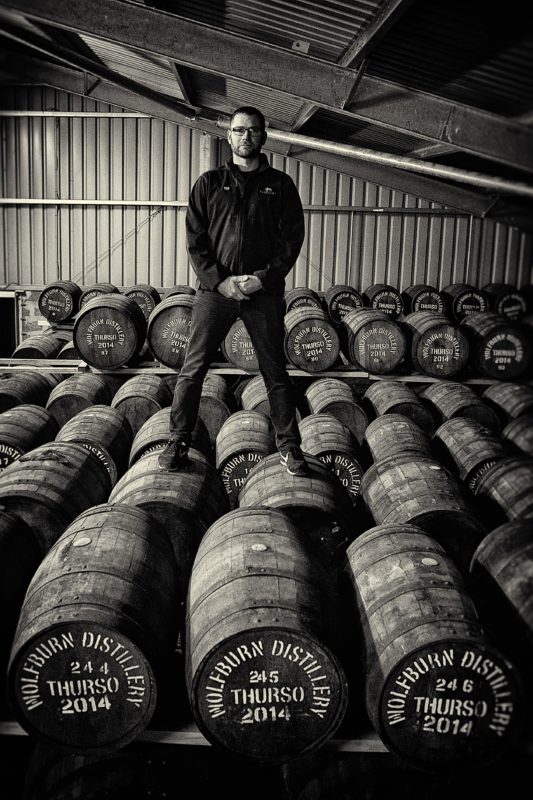 Shane, tell us a bit about yourself. How did you get into the world of Spirit Distillation?
Shane, tell us a bit about yourself. How did you get into the world of Spirit Distillation?
SF: I’ve been making whisky for well over 25 years. I grew up near Royal Lochnagar distillery and was lucky enough to get my first job there, aged 16. In theory I was too young to drink the whisky I was making! I guess you could say it started as a job, then became a profession, and now it’s a passion.
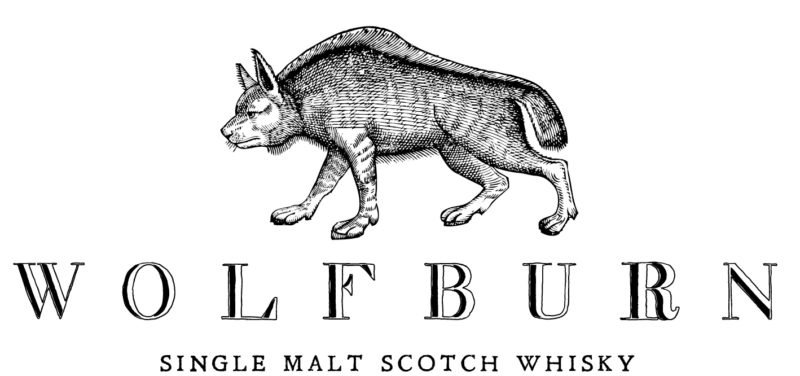 Wolfburn Distillery has a long rich history beginning with William Smith over almost 200 years ago. How has the whisky evolved over time until this current date. What innovations are you currently utilizing to stand out in the Scotch Whisky Market?
Wolfburn Distillery has a long rich history beginning with William Smith over almost 200 years ago. How has the whisky evolved over time until this current date. What innovations are you currently utilizing to stand out in the Scotch Whisky Market?
SF: Innovation might be the wrong word, as everything we do at Wolfburn is along traditional lines. But having said that, we have a truly unique style of spirit. It’s based on ideas that evolved in my head over many years in the trade; things I’ve picked up along the way. It’s fair to say that no-one makes spirit quite the way we do – and people are really loving our whisky, so we must be doing something right!
Where are your casks sourced from?
SF: We have a variety of sources – from cooperages in Scotland, and we get some of our sherry casks direct from Spain. It’s not really a question of source, it’s a question of quality. Anyone can buy whisky casks – but not anyone can buy good whisky casks. And ultimately it’s the quality of the wood that determines the quality of the whisky, so we are hugely picky about our casks. They really are top class.
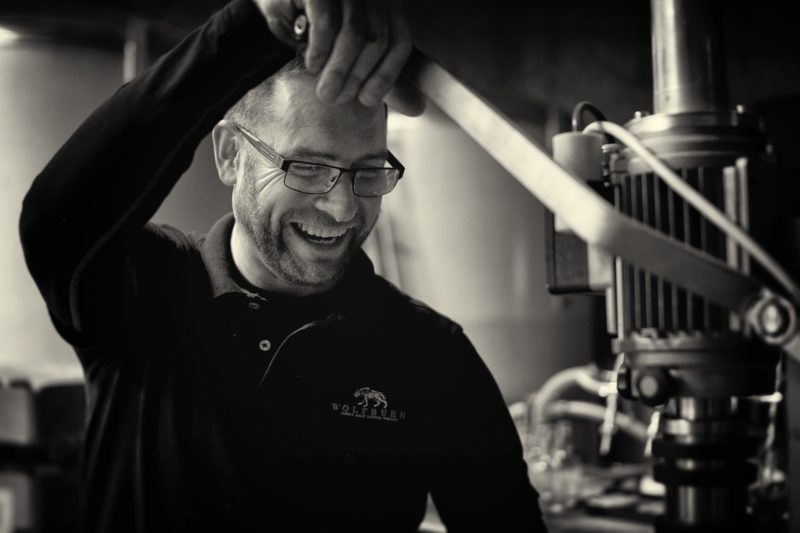 Shane, do you have any thoughts about finishing? Port, Sherry etc. More and more finishes are being done by whisky distillers. Do you have a favorite finish (mine is oloroso sherry)?
Shane, do you have any thoughts about finishing? Port, Sherry etc. More and more finishes are being done by whisky distillers. Do you have a favorite finish (mine is oloroso sherry)?
SF: Finishing is a great way to add depth of flavour to a whisky – and we’ll certainly be producing a variety of finishes in the future. But at the moment we’re in a very lucky place in that we have spirit maturing in several different cask types – including ex-Oloroso casks. So rather than just relying on finishing, we’re able to produce whisky that’s fully matured in special casks. That’s unsual in this day and age, and the results are truly superb.
Do you see yourselves, one day doing a Peated Finished whisky?
SF: Back in 2014 we did our first run of peated spirit, and it was such a success that we’re repeating it every year. In years ahead this means we’ll have plenty of peated spirit to try different finishes with, so I’m sure we’ll produce a peated finished whisky one day. It’s too early for any details yet, but we have plenty of sherry casks, so I can envisage a peated-sherried finish one day.
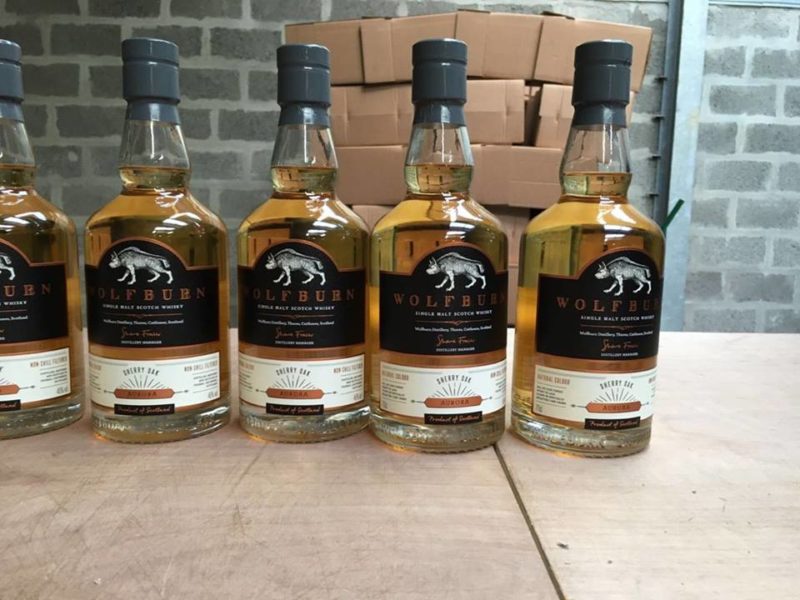 Where do you see the Scotch whisky industry 5 years from now?
Where do you see the Scotch whisky industry 5 years from now?
SF: That’s a tricky question! I think consumers everywhere are becoming more discerning – they’re looking for quality. So within the scotch industry I think growth will come from the higher-end single malt whiskies, in particular ones that are made by craftsmen. I’m sure there will always be a place for big volume whiskies, but the excitement is around smaller distilleries where traditional production methods ensure high-quality whiskies.
It was only recently about 5 years ago that a new Wolfburn Distillery was built. What are you guys doing to stand out in this overly saturated highly competitive market, being such a young distillery?
SF: Ultimately I think everything distills down [sorry… couldn’t resist!] to the quality of the whisky. Wolfburn has lovely packaging, and we have a great story to tell, but all the marketing in the world is worthless if your whisky isn’t up to scratch. We set out to make a smooth, easy-drinking whisky that people everywhere could enjoy, even while it’s young. We’ve already won multiple international awards, and the sales numbers are incredible – way beyond our forecasts – so I think we’ve made a good start. I’m not planning on any gimmicks to try and make Wolfburn stand out – we’re just going to focus on making the best possible whisky, and people can make up their own minds!
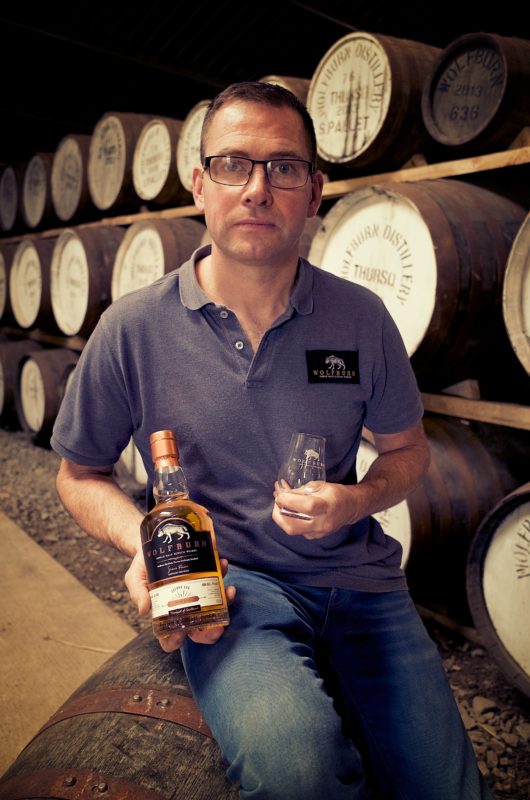 What is the main difference between Scotch, Bourbon and Irish Whisky?
What is the main difference between Scotch, Bourbon and Irish Whisky?
SF: There’s a bunch of factors, but it’s a very broad question as there are big differences even within each of those sectors. Ingredients and the hot climate are what mark out most bourbons, and triple distillation is sort of the hallmark of Irish whisky. I don’t believe that one is superior to another; it all comes down to individual preference. Having said that, I’ll always take a single malt scotch over anything else – but given my background I guess that’s predictable!
When doing the Whisky distillation, where do you think the most flavor control can occur? Grain? Yeast? Water? Wood?
SF: It’s a combination of factors. At Wolfburn we allow a very long fermentation, averaging around 75 hours. That’s 50% longer than industry standard and arguably very inefficient, as the sugar has all turned to alcohol by around 50 hours. But it brings out some wonderful sweet, floral flavours, which carry right through distillation and maturation. Wood is hugely important too of course – the cask is what gives our whisky all its colour; we don’t add any artificial colourant. And the cask also imparts a big part of the flavour.
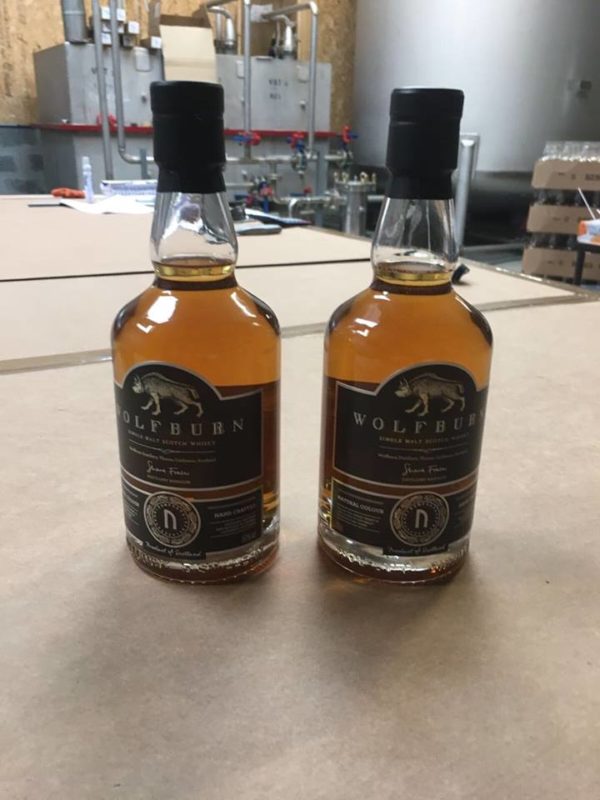 What are the most important factors affecting whisky distillation? How do you ensure that these are carefully balanced to produce a consistently high quality product?
What are the most important factors affecting whisky distillation? How do you ensure that these are carefully balanced to produce a consistently high quality product?
SF: There isn’t one single factor – it’s a case of the chain being as strong as its weakest link. You could summarise my job by saying it’s a constant search for perfection, tweaking every little process every single day in order to get the best possible result. That covers everything, from the gauge of the mill to the strike temperature of the fermentation, to the temperature or length of distillation, to the size and type of casks used for maturation. Everything. Malt is a living product – no two batches are identical. So we constantly tweak every input in order to get a consistently excellent output.
Do you believe that now is the most exciting time for a Whisky Lover?
SF: Yes, absolutely – there is more information available about whisky than ever before, and of course more brands to try. It’s a great time to be involved in the industry too.
“I’m not planning on any gimmicks to try and make Wolfburn stand out – we’re just going to focus on making the best possible whisky, and people can make up their own minds!” – Shane fraser
What current expressions of Whisky does your distillery currently produce? Do you have some old barrels that will be bottled at a 20+ year mark anytime soon ?
SF: Wolfburn has two permanent expressions, ‘Northland’ and ‘Aurora’. These are augmented by limited releases, especially the ‘Kylver’ collectors expressions, of which there will ultimately be 24 in the series – we’ve released just two so far, and a third is due out before the end of 2017.
Any special released we can look forward to?
SF: We’re just about to launch our first small-batch whisky, called ‘Batch 128’; it’s matured in very unusual 100 litre first-fill ex-bourbon casks, and it’s absolutely lovely! It’ll be out during August.
Shane, tell us, is there a right way to drink whisky?
SF: In my humble opinion, the right way is whatever you enjoy the best. There’s a lot of nonsense spoken about it being somehow a bad thing to have whisky on ice, or how you absolutely must always add a dash of water. But these things assume that everyone’s palate is the same, which is ridiculous. Ultimately we make whisky for people to enjoy – so however you enjoy it, that’s the right way to drink it!
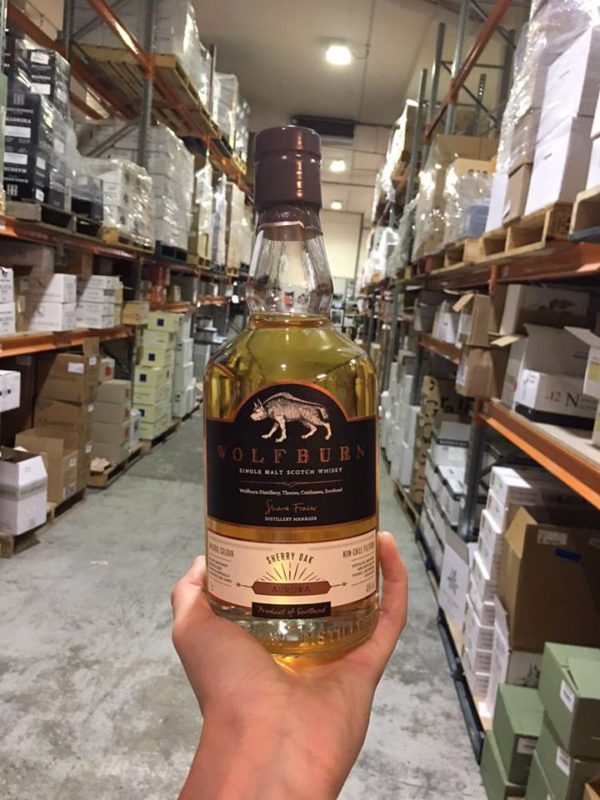 What is your opinion on the NAS “No Age Statement” Whisky?
What is your opinion on the NAS “No Age Statement” Whisky?
SF: At the moment Wolfburn only has NAS whiskies, so I’m sure you can guess my opinion! Like so many things with malt whisky, it’s about finding a balance. It’s true that the longer spirit stays inside a cask, the more it matures. But not all spirit needs to stay in a cask for 10 years or more – far from it in fact. At Wolfburn we make a very light, pure spirit – in fact it’s quite drinkable straight from the still. So the cask has relatively little work to do – there are almost zero impurities to be taken out, which is why our three year old whiskies have won so many awards.
Is there anything else you’d like to share with our readers?
SF: Just a request: get yourself a bottle of Wolfburn and give it a try!





